Presently global teams and fluctuating market demands and organizations require— effective and strong management of projects’ programs to sustain themselves in the competitive environment.
In this article, which will be a guide on everything about the 15 best project management software for 2024, what it involves, and how you can pick the right tool for your organization in India, we begin by defining the term.
What is Project Management?
Project management is defined as the ability to coordinate a project, including designing and implementing it with a fixed scope from start to completion.
It includes planning the project scope, resources, expected completion time, people involved, and schedules to ensure that the project is completed within the set parameters of scope, time, and cost.
It is, therefore, important to stress that project management is a critical component of organizations no matter the size or field of specialty. It assists in ensuring that groups remain well-organized and that members are always communicating and achieving their project goals within the specified time and cost.
If there is no effective project management, the project may confused very quickly; there will be delays, costs exceed the limit, and the project will be of low quality.
Benefits of Using Project Management Software
1. Improved Organization and Transparency
As a forecasting tool, software for project management offers a single location for overseeing tasks as well as resources and due dates. It facilitates a situation in which the teams get an insight into whether the project is on track, what needs to be accomplished, or what might slow down the project.
It creates improved relations thus making team members to be more responsible in their duties.
2. Enhanced Collaboration and Communication
In the present climate of doing work from home, cross-functional teamwork is imperative for the successful outcomes of projects. Other benefits of project management often include the ability to write and share messages or memos for improved communication among the team, clients, and stakeholders.
Functions such as file sharing, live event notifications, and text chat help everyone remain aware and synchronized.
3. Efficient Resource Management
Resources are one of the common components in managing a project. In terms of resources, it allows for the better management of people resources since it displays the capacity, strengths, and working rates of the project team. This helps the project managers in assigning the right tasks and resources within the right capacity and on time.
4. Increased Productivity and Efficiency
First, with a focus on routine activities, frequent updates, and various workflow-related processes, the software decreases manual manipulations, thus minimizing the probability of mistakes. It also means that productivity goes up and time for utilizing the staff’s value-added activities is optimized.
5. Data-Driven Decision Making
Managing project resources more effectively can be achieved by using project management software, which typically has an effective report and analysis function.
Subsequently, real-time details reduce the possibilities of assumptions or implementation of certain strategies without keen confirmation, which contributes to improved project performance.
Key Features of Project Management Tools
1. Task Management and Scheduling
Every PM software has one fundamental element including the creation of tasks, assignment of tasks, and the tracking of tasks. Some features include using checklists, Gantt charts, and calendars to minimize time and have the team deliver on set timelines.
2. Project Planning and Scheduling
Some of the planning tools that are useful in project planning include project roadmaps, project timelines, and project milestones; help to identify project boundaries, establish achievable objectives, and create a more precise project calendar.
3. Resource Management
Resource management features let a project manager decide which resource shall be assigned for the project who among the staff is available and proficient enough to take up the project and how much workload he is currently handling.
It includes status, resource calendars, capacity planning, workload management, and other features.
4. Time Tracking and Billing
Important features including ordinary time tracking and billing allow capturing time to do a particular task or a project so that proper billing procedures for the work done can be carried out.
5. Reporting and Analytics
It has robust reporting and analysis capabilities that can be useful in understanding the progress and efficiency of a project as well as its associated costs and any possible concerns or issues. Notably, this method enhances decision-making based on data as well as enabling the process of improvement to be consistent.
List of 15 Best Project Management Software
1. monday. com
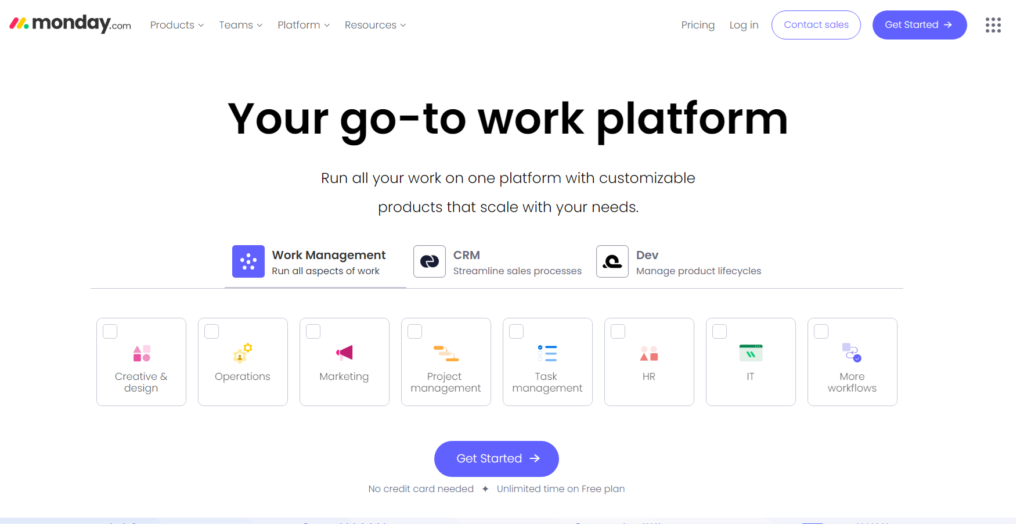
monday.com is a project management application provided as a service, it is a flexible tool, possessing a great degree of customization, and heavily relies on visualization.
Its key feature include Task management, visualization with the use of boards such as Kanban, Gantt charts, and calendar view, automation, integrations, and automatic reporting.
Pros:
- Intuitive interface,
- highly customizable,
- strong collaboration tools,
- numerous integrations.
Cons:
- The sloped learning curve when it comes to using the application on higher levels that have more features.
- limited free plan.
Pricing:
Another interesting feature is that it offers a free plan, and paid plans are much more costly and begin at $8/user/month.
2. Celoxis
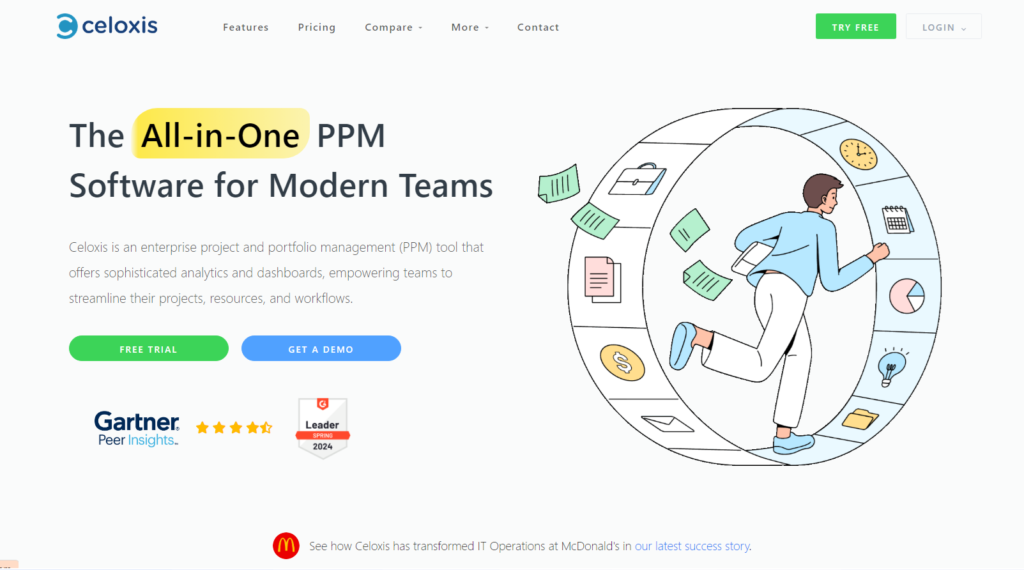
Celoxis is an Enterprise project portfolio management resource management and Staffing software.
A project portfolio entails several important aspects such as the management of projects in a portfolio, resource management, project time tracking, collaborative working, reporting on the progress, and risk management.
Pros:
- Robust feature set,
- scalable for enterprises,
- strong resource management capabilities.
Cons:
- Complex setup,
- steep learning curve,
- limited customization options.
Pricing:
Available upon request.
3. Smartsheet
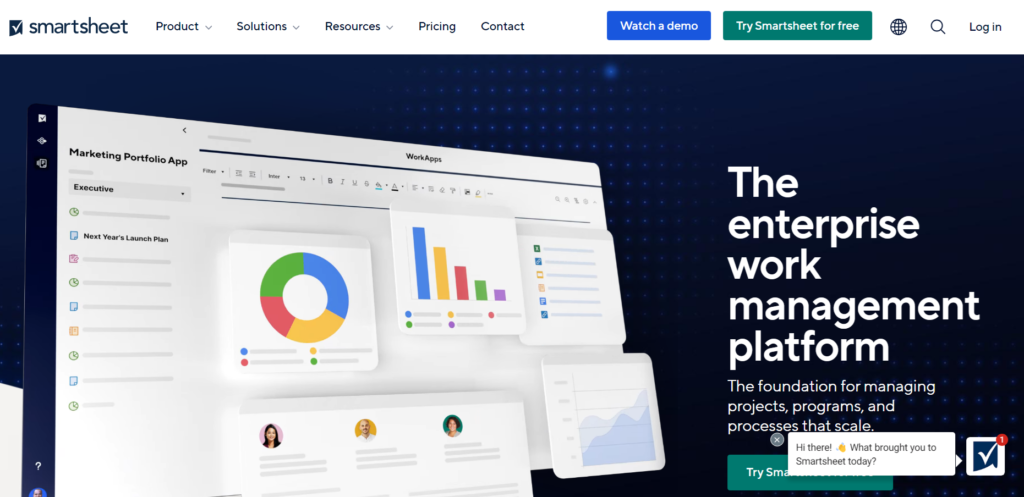
Smartsheet is a business collaboration software solution based on the cloud that acts like an improved work platform that fuses aspects of a workbook and a project management tool.
Its key features include Scheduling, scheduling visualization, resource allocation, teamwork, efficiency, self-automation, and compatibility.
Pros:
- Intuitive spreadsheet-like interface,
- robust automation,
- strong reporting capabilities.
Cons:
- The free plan is somewhat restrictive and the software may be costly for small groups and businesses.
- Quite a high learning curve if users want to take advantage of all the features available in newer models.
Pricing:
The trial is free, and there is a wide range of paid plans starting from the basic $7 per user per month.
4. Wrike
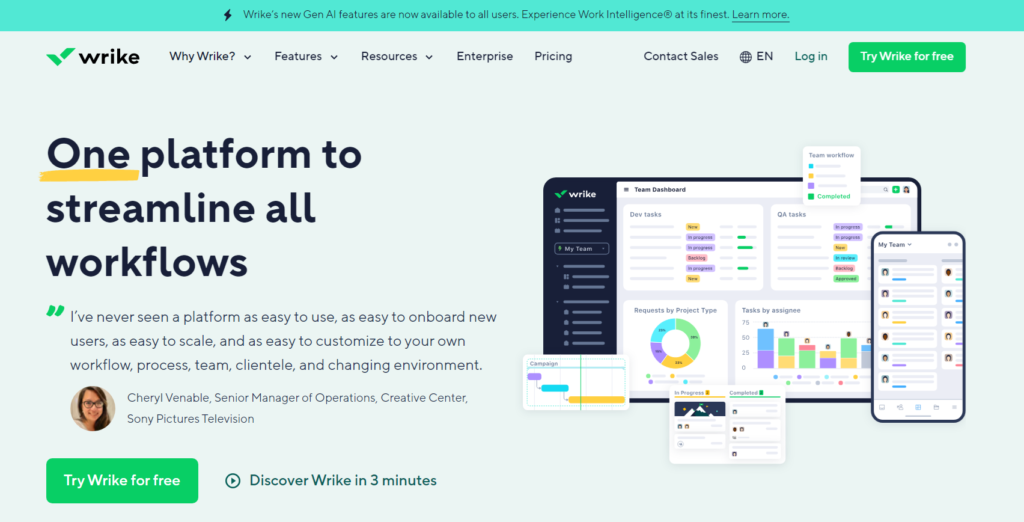
Wrike is a cloud-based project management and collaboration application with features suitable for all types of working groups.
Its key features include to-do lists, time plates, collaboration, repetition simplification, time estimating, Gantt charts, reporting, and more.
Pros:
- Intuitive interface,
- strong collaboration tools, and
- customizable workflows.
Cons:
- Limited free plan,
- high difficulty for extra functionality.
- limited integrations.
Pricing:
It is clear that there is a possibility to sign up with no cost at all, while paid plans are from $9. 80/user/month.
5. ClickUp
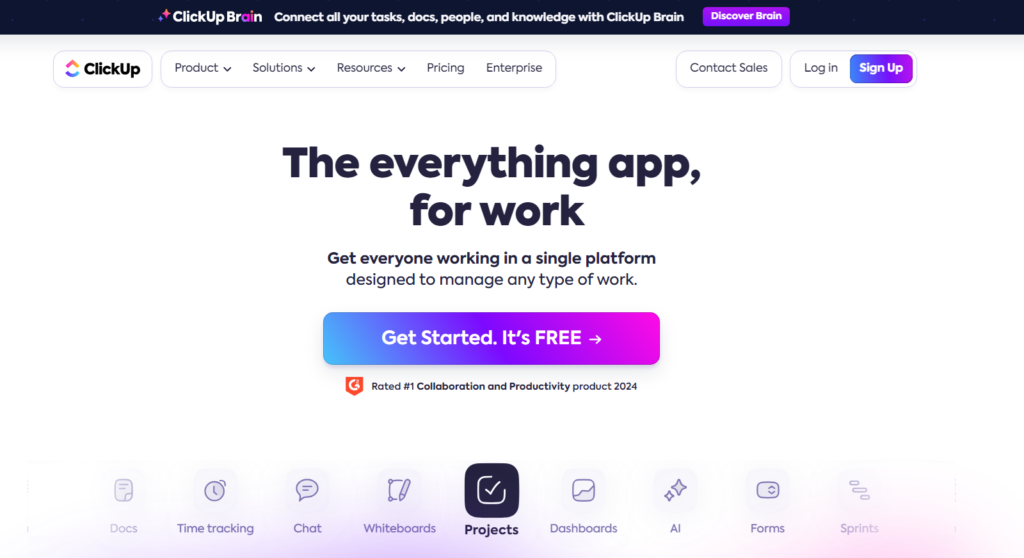
ClickUp is a suite of apps that provides collaboration and project management tools together with document collaboration and task management in one place.
Its key features include lists, boards, navigation, timeline, calendars, custom fields, shared, and linked; one-click; third-party app connections.
Pros:
- Customizable interface,
- robust feature set,
- strong integrations.
Cons:
- The steep learning curve,
- limited free plan,
- Challenges that comprise performance problems with large projects.
Pricing:
A free plan is available for use, and the paid plans start at $5 per month.
6. Visor
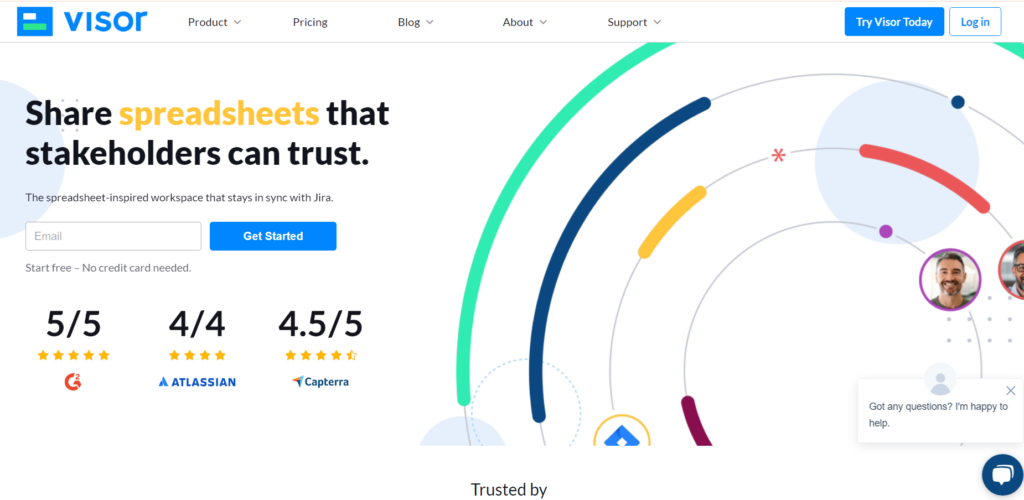
Visor is a type of project management software solution that is designed to suit the unique needs of creative departments and creative agencies.
Workflow, templates, timers, customers, and resources – all to do with the projects you are assigned.
Pros:
- Tailored for creative teams,
- strong resource management capabilities,
- user-friendly interface.
Cons:
- Limited integrations,
- lack of advanced reporting,
- no free plan.
Pricing:
For the paid plans, the basic price billed per user per month is $9.
7. Quickbase
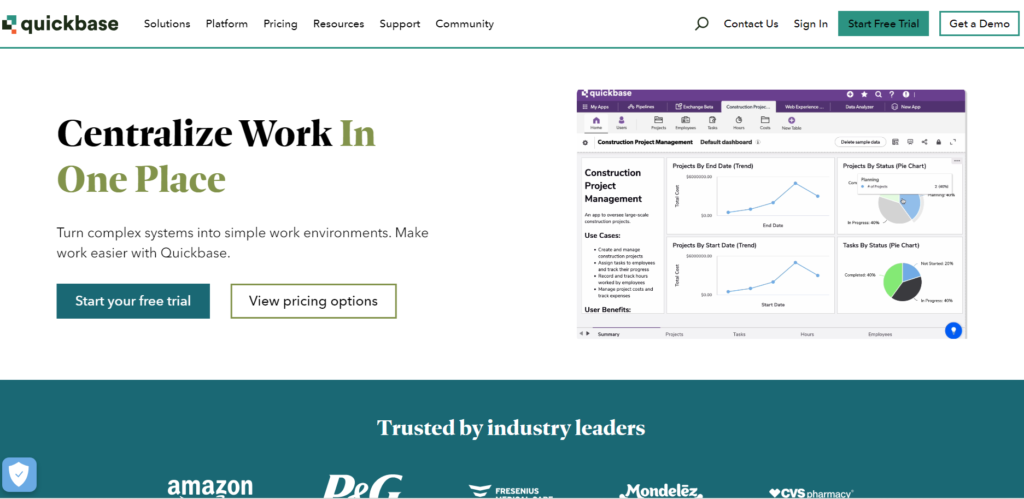
Quickbase is an application development software where users can develop applications through drag-and-drop functionality to create business applications from scratch with no coding skills required, and one of the applications that can be developed is a project management application.
Its feature include the best features here are that its applications are configurable to the specific requirements of each project, it offers efficient tracking and planning through BPM and PM, as well as constant reporting and integration.
Pros:
- Highly customizable,
- low-code/no-code platform,
- strong integrations.
Cons:
- The steep learning curve,
- only a few extra feature
- Not cost-effective for small teams who do not have the luxury of extra resources.
Pricing:
However, the paid plans begin with as low as $ 15 per user per month.
8. Hub Planner
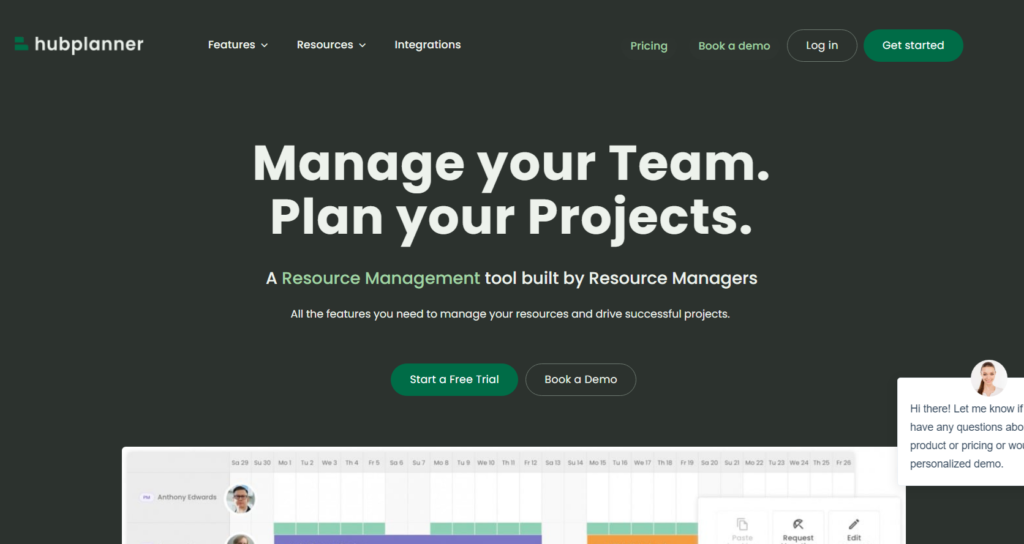
Hub Planner is a project management software that has been optimized for agencies and other professional service providers.
The software envision is used in project planning, resource allocation, estimation of project costs, billing and record keeping, and communication with clients.
Pros:
- Tailored for agencies,
- strong resource management capabilities,
- integrated invoicing.
Cons:
- Limited integrations,
- the absence of an analytic tool to present advanced reporting.
- no free plan.
Pricing:
The basic price is free and yet, the company also offers paid plans that start from $7 for each user monthly.
9. Zoho Projects
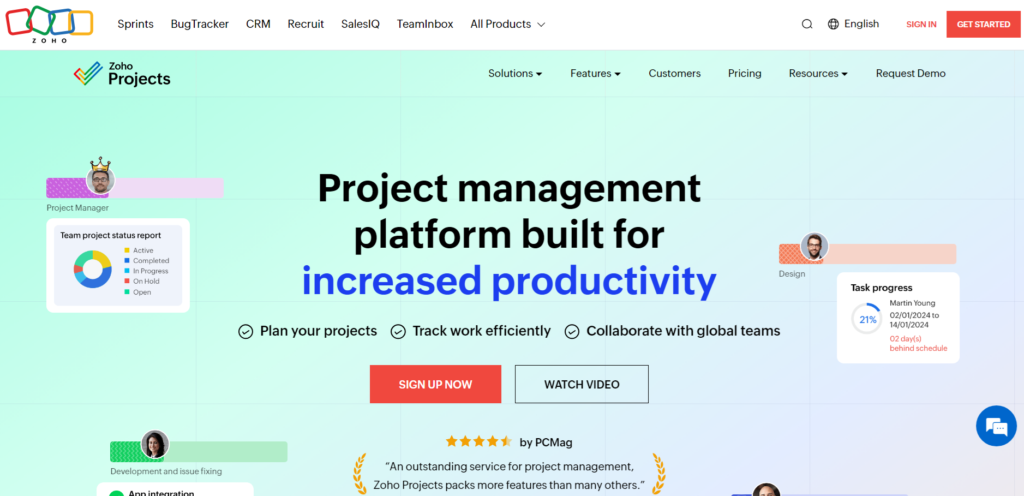
Zoho Projects is an online project management tool with all the features that several teams need to effectively manage their project.
Its key features include to-do lists, simple and detailed schedules, using Gantt charts, tracking time spent, tracking issues, and compatibility with other Zoho applications.
Pros:
- The intuitive interface
- can be integrated with the Zoho suite rather strongly.
- affordable pricing.
Cons:
- Limited customization options,
- absence of sophisticated analysis, and tools for data analysis.
- limited free plan.
Pricing:
You can get a free version of it, however, if you want to get more in-depth features, prices start at $3 per user per month.
10. Quire

Quire is much more than a to-do and task management software but a versatile work and project management tool for remote and distributed teams.
Its key features include project tracking and management, team communication in real-time, document-sharing, and app integration.
Pros:
- It has a commendable interface,
- powerful collaboration capabilities,
- quite economical.
Cons:
- They have limited reporting capabilities,
- do not have some of the features about projects like the Gantt chart
- limited integration capabilities.
Pricing:
Busy customization tool with a free version; paid plans cost $5 per user per month.
11. Bonsai Agency Software
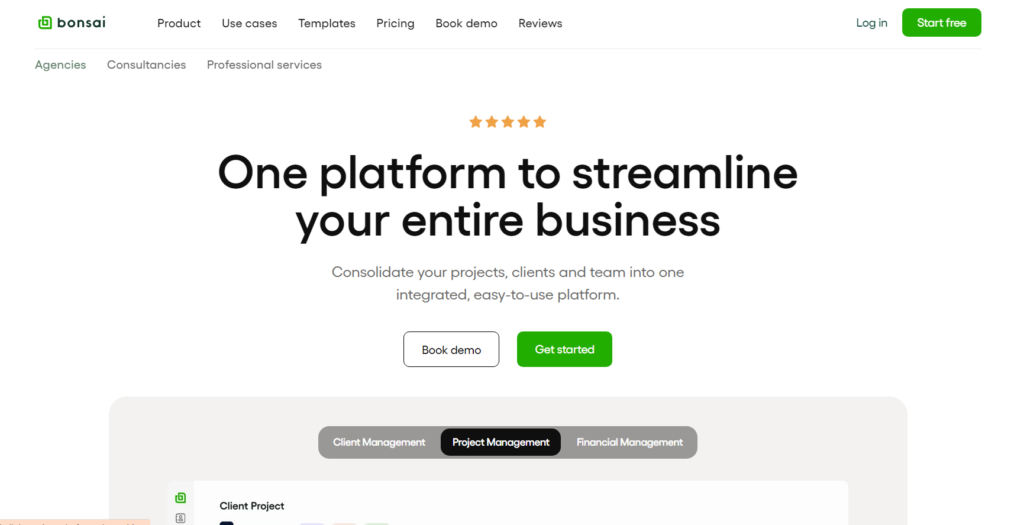
Bonsai Agency Software can be described as an all-in-one project management software developed with an emphasis on the needs of creative agencies as well as independent contractors.
Its key features include budgeting for expenses and revenue, communication with clients, scheduling of tasks, time tracking, and creation of bills.
Pros:
- Developed for agencies and freelancers,
- invoicing included and simple design.
Cons:
- low integration,
- absent of rich analytical reporting, and
- no trial version.
Pricing:
For the Site Plans, it costs $19 per month.
12. Jira
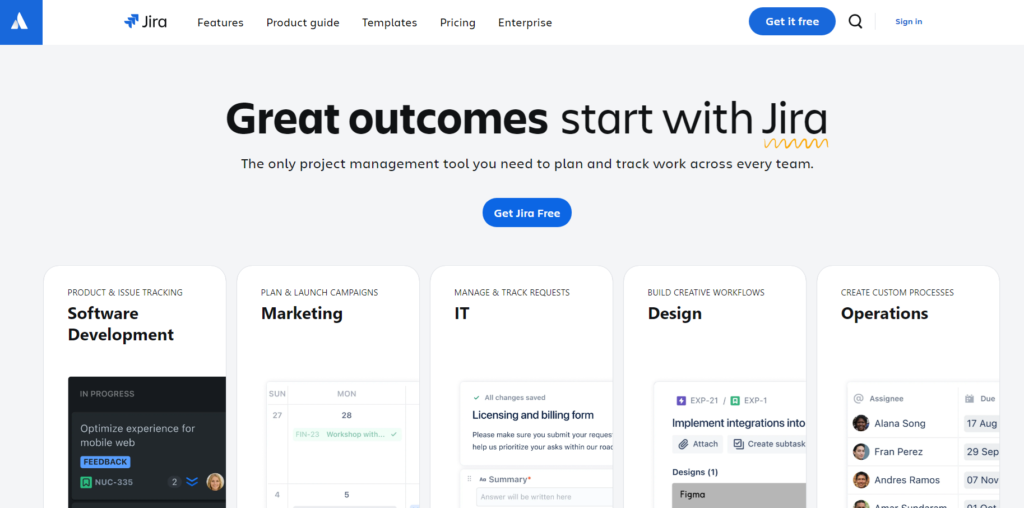
Originally, it has been used by software development companies to track their projects, bugs, issues, and other characteristics; it has been designed and developed by Atlassian and called Jira.
Project support and management, bug tracking, process customization, and connections to other Atlassian software.
Pros:
- Good for extensive feature lists
- teams that work in software development,
- highly customizable, and has great integrations.
Cons:
- Great difficulty in getting started as well as installation
- It may be costly to implement for smaller development teams.
Pricing:
You can get various features and functionality if you upgrade to this paid plan for $7.75/user/month.
13. Miro
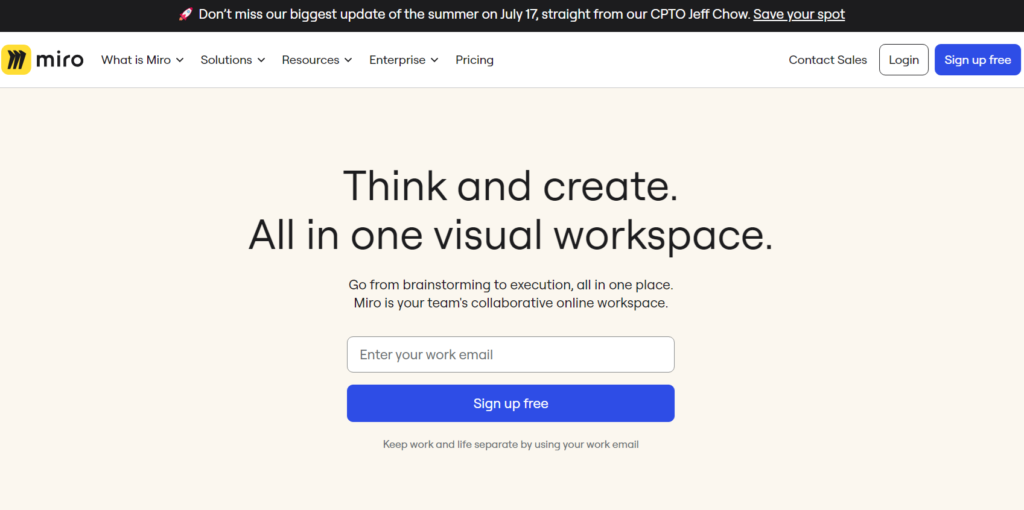
Miro is another online application for creating whiteboards for capturing ideas and is also useful in undertaking project management and remote collaboration.
Its features include endless background, live simultaneous working, general form, and connectors.
Pros:
- Very effective for visual discussions,
- Easy to use, and
- Resourceful to integrate.
Cons:
- Considerable project management tools and features,
- Inadequate reporting
- No specific project management templates.
Pricing:
A free trial is offered, which can be upgraded to the free plan or paid plans, with the basic plan at $8 per user per month.
14. Microsoft Project
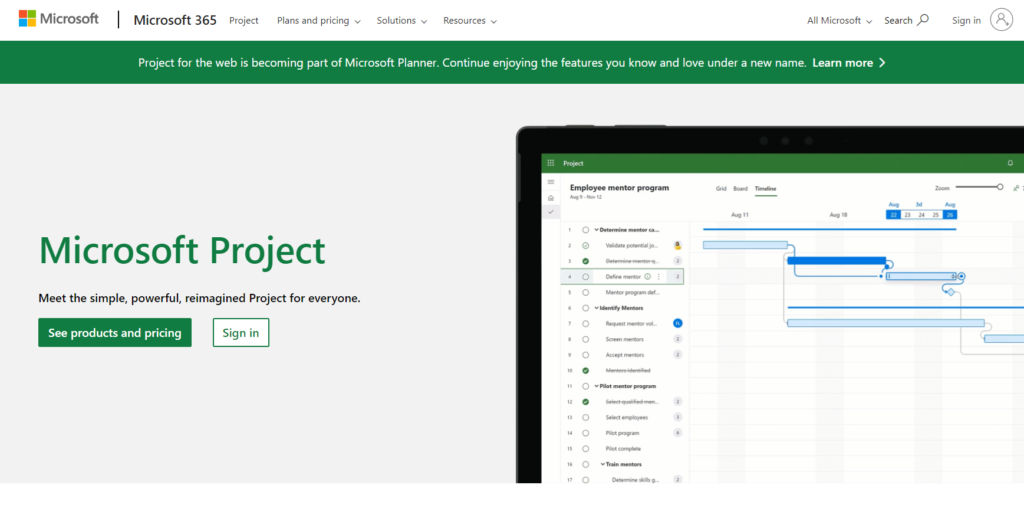
Microsoft Project is a scheduled program tool particularly designed to run on the MS Office solution for managing projects.
Its features include Scheduling and planning of the larger project, organization and management of subtasks, management of available resources, and reporting of progress.
Pros:
- Scholarly features Microsoft products, and
- An interface that should not confuse Microsoft platform users.
Cons:
- Windows-only environment,
- lack of integrated collaboration tools
- Some programs, and complex interfaces it offers to users.
Pricing:
It offers single payment plans or monthly/annual subscription Solutions starting at $10/user/month.
15. FigJam by Figma
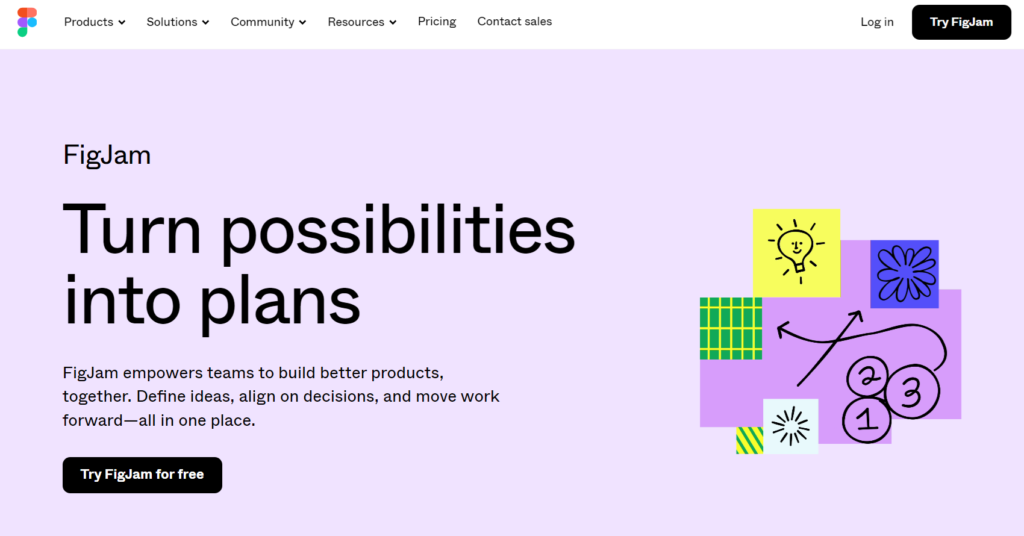
It is an online collaborative whiteboard by Figma that focuses more on enabling multiple users to brainstorm the project and even utilize it in project management.
Its features include Unlimited projects, synchronous editing, project templates, and linking to Figma.
Pros:
- Smart and friendly interface,
- A great tool for visualization,
- Powerful integration with Figma.
Cons:
- Some project management features, there are very few specialized options in this particular field;
- There are also no project management reports, only plain text reports;
- There are also no project management templates offered.
Pricing:
A freemium model to access collaboration tools Balanced scorecards can be created and edited with the free plan; paid plans start from $12 per editor per month.
How to Choose the Best Project Management Software
1. Scalability and Flexibility
Order software that can grow with your business and adjust itself to the changing demands of your projects. By saying that the software should be flexible it means that it must be adaptable to different project paradigms.
2. Collaboration and Communication Tools
There is significant synergy between team cooperation and effective communication processes in project management. That is why, when choosing the software, focus on the one that has characteristics such as a task assignment, file-sharing tools, real-time updates, and messaging to ensure that team members are oriented.
3. Integration Capabilities
Most companies apply several frames and techniques for various organizational processes. Check if the project management tool you select dovetails with the other apps you operate, i.e., CRM Systems, accountancy, or document sharing.
4. User-Friendliness and Intuitive Interface
Management support is crucial to the success of any organizational change such as adoption enabling software implementation. Another characteristic is the simplicity of its interface, which must be clear and understandable, so your team will not spend a significant amount of time getting to know the new tool.
Conclusion
The best 15 project management software presented in this article indicates that such systems provide a diverse array of features, including task assignments, resource scheduling, collaborative tools, and reporting. It doesn’t matter if you are leading a small group of employees or if you are controlling complex ventures; there is the right business software for your needs.
Project management software should be easy to use, integrate, and scalable when choosing the software to be used during a project. Furthermore, these 15 best project management software, definitely going to aid a lot.
FAQs
1. What are some of the user-friendly project management software?
Tools like monday.com ease of use and design, Smartsheet, and ClickUp are some of the most widely used options.
2. What are the best solutions for project management for distant workers?
Several of the listed tools including Wrike, ClickUp, and Quire can boast robust collaboration features, which make them ideal for teams that are working remotely in particular.
3. Which project management software comes closest to being free to use?
One can utilize Zoho Projects, Quire, and Monday. com provides reasonable subscription rates which makes them accessible.
4. Which software is best suited for the project development teams?
Jira, developed by Atlassian, is popular among the software development team since it has strong issue-tracking features and works with Agile.



